Byrne, Roby celebrate House passage of bill to overhaul career-tech education
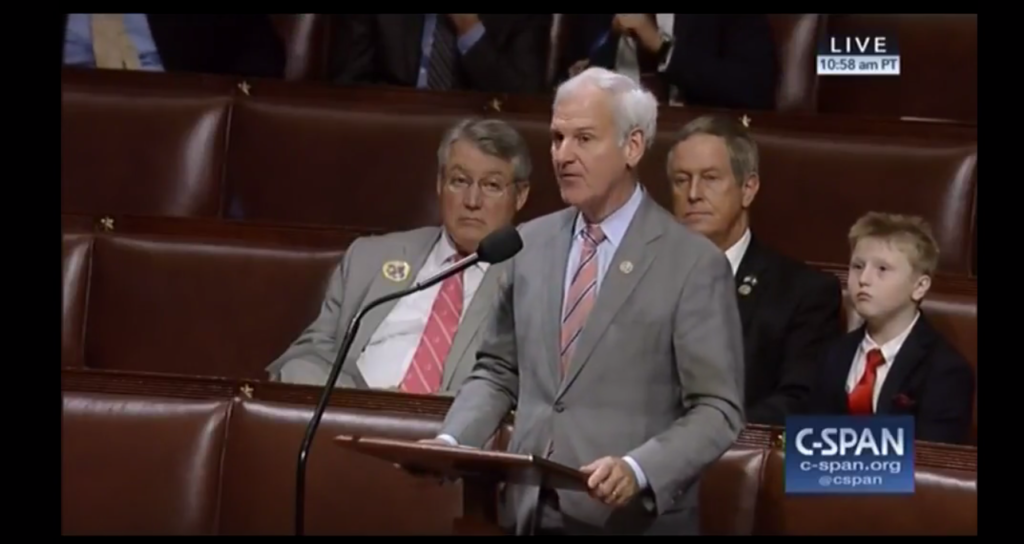
Americans face a job market vastly different from the one that existed a generation ago. With constant advances in technology and an ever-growing global economy, the kinds of jobs available require high-quality education and skills development vital to competing in today’s workplaces. Since 1984, the Carl D. Perkins Career and Technical Education Act has endeavored to provide federal support to state and local career and technical education, or CTE, programs. But the law has not been updated in more than a decade, and no longer reflects the realities and challenges facing students and workers. Which is why the House of on Thursday approved a bill update the law and help all Americans access the education they need to earn a lifetime of success. H.R. 2353, the Strengthening Career and Technical Education (CTE) for the 21st Century Act, passed on a voice vote, reauthorizes and updates the Carl D. Perkins Career and Technical Education Act and includes some important reforms: Empowers state and local community leaders; Improves alignment with in-demand jobs; Increases transparency and accountability to ensure programs deliver results; Simplifies the application process Provides greater flexibility to program administrators so they can adjust to changing needs; Ensures a limited federal role in education. Alabama 1st District U.S. Rep. Bradley Byrne, Chairman of the House Workforce Protections Subcommittee, today celebrated the passage of the bill saying it will have a “huge impact at creating opportunities for Americans in Southwest Alabama and around the country.” “Improving career and technical education programs is the most important thing Congress can do to help close the skills gap, combat poverty, and put Americans back to work,” said Byrne. “I’ve seen these programs firsthand dating back to my time as Chancellor of Alabama’s two-year college system, and they truly work like magic. “This is the type of bipartisan bill that will never get the attention it deserves, but it will have a huge impact at creating opportunities for Americans in Southwest Alabama and around the country.” His Alabama House colleague, 2nd District U.S. Rep. Martha Roby echoed his sentiments. “I’m a big believer in Career Tech programs for three simple reasons: They help prepare students for rewarding careers; They ensure American workers have the tools necessary for skilled trades that are foundational to our society; And, they boost our economy by providing a quality workforce,” said Roby ahead of the vote. “With the modern workplace changing at a rapid pace, it is imperative that educators and facilities keep up. With this bill, these programs can continue to successfully connect today’s students with the careers of tomorrow.” Byrne delivered a speech on the House floor in support of the bipartisan legislation. Watch below: A transcript of Byrne’s remarks can be found below: I thank the Chairwoman for yielding, and I am proud to rise in support of this strong, bipartisan legislation. Improving career and technical education programs is the most important thing Congress can do to help close the skills gap, combat poverty, and help put Americans back to work. Studies clearly show that there are unfilled, high wage jobs out there that remain open because people lack the skills to fill the jobs. That’s where CTE comes in. When I was Chancellor of Alabama’s two-year college system, I saw firsthand just how impressive these programs are. They really do work like magic by taking an untrained worker and giving them the skills they need to fill an in-demand job. It is a win-win situation for everyone. So, Mr. Speaker, I am proud to be an original co-sponsor and supporter of this legislation, I encourage my colleagues to join me in supporting this reform-oriented bill that helps build the 21st Century workforce. Watch Roby’s floor speech below:
No tapes: Donald Trump says he didn’t record meetings with James Comey
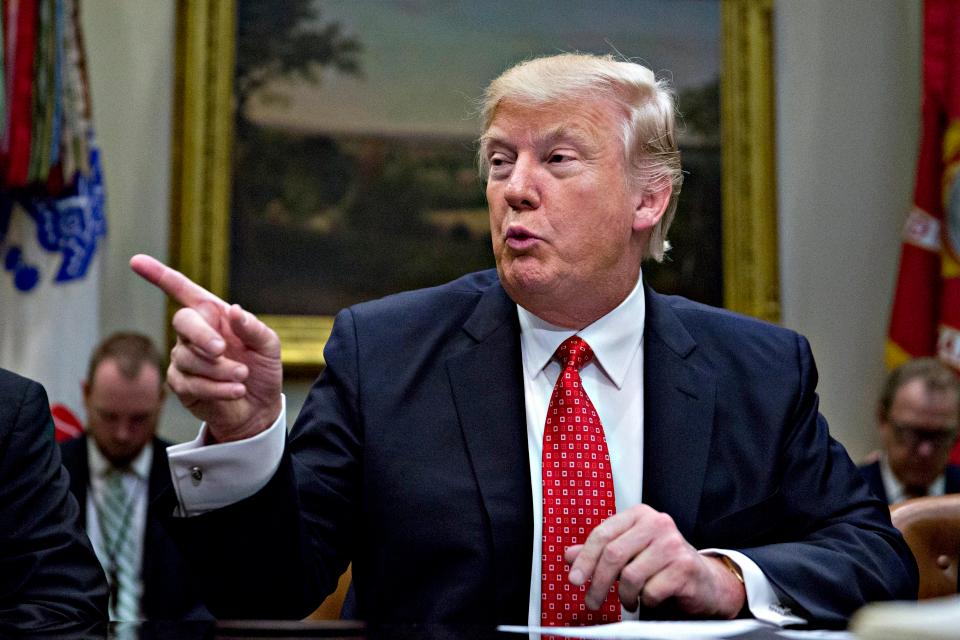
President Donald Trump said Thursday on Twitter that he “did not make” and doesn’t have any recordings of his private conversations with ousted former FBI Director James Comey. “With all of the recently reported electronic surveillance, intercepts, unmasking and illegal leaking of information,” Trump said he has “no idea” whether there are “tapes” or recordings of the two men’s conversations. But he declares he “did not make, and do not have, any such recordings.” The tweets are the latest chapter in a high-stakes guessing game after Trump hinted that he might have recordings of his private conversations with Comey at the White House and over the phone. The tale of mystery began last month, just days after Trump fired Comey, who was then leading an investigation into contacts before and after the election between the president’s campaign and Russian officials. The absence of recordings almost certainly elevates in significance to investigators the notes made by Comey right after his conversations with Comey. A New York Times report cited two unnamed Comey associates who recounted his version of a January dinner with the president in which Trump asked for a pledge of loyalty. Comey declined, instead offering to be “honest.” When Trump then pressed for “honest loyalty,” Comey told him, “You will have that,” the associates said. Trump tweeted the next day that Comey “better hope that there are no ‘tapes’ of our conversations before he starts leaking to the press!” Trump’s tweets on Thursday raised questions about why the president would have staked his reputation and political capital on promoting something that wasn’t real. His earlier suggestion about tapes immediately evoked the secret White House recordings that led to Richard Nixon’s downfall in the Watergate scandal. Under a post-Watergate law, the Presidential Records Act, recordings made by presidents belong to the people and can eventually be made public. Destroying them would be a crime. Comey says any recordings that might exist would support his version that Trump asked him to pledge loyalty and urged him to drop the investigation into Trump’s former national security adviser. “Lordy, I hope there are tapes,” Comey declared at a congressional hearing. But the president has steadfastly refused to clarify whether any tapes existed. Two weeks ago, he teased reporters in the White House Rose Garden by saying that he’d explain “maybe sometime in the very near future.” He cryptically added: “You are going to be very disappointed when you hear the answer.” White House deputy press secretary Lindsay Walters said Wednesday that an answer would be provided this week, presumably by the Friday deadline set by the House intelligence committee for turning over any tapes. The Secret Service had said it had no audio copies or transcripts of any tapes recorded within Trump’s White House, according to a freedom of information request submitted by The Wall Street Journal. But that didn’t exclude the possibility that recordings were created by another entity. Republished with permission of The Associated Press.
Americans and guns: It’s really complicated, survey shows

Americans have long had a complex relationship with guns. Now, a new study shows that the country’s deep political divide is reflected in attitudes toward gun control. The Pew survey released Thursday found a sharp drop in overall support for gun control despite common ground on some key issues. For example, when people were asked whether it was more important to protect gun rights or control gun ownership, 51 percent favored gun control and 47 percent favored gun rights. Compare that with responses in 2000, when two-thirds of those surveyed said they supported gun control measures. People in the new survey were in broad agreement when asked about specific gun control measures. Some 89 percent supported preventing the mentally ill from buying guns and 84 percent of all adults supported background checks for private sales and at gun shows. Barring gun purchases for people on no-fly lists won support from 83 percent, while 71 percent of adults, including a small majority of gun owners, supported a federal database tracking gun sales. The survey showed wide disparities in how people view firearms along political, gender, racial and geographic lines. The gaps come at the start of President Donald Trump’s term. He is seen as one of the most gun-friendly presidents and could be supported by a Republican-controlled Congress, although there has been little action on gun issues since January. About half of the public said making it more difficult to purchase a firearm would mean fewer mass shootings, while a little over one-third said it would have no impact. Most people attribute gun violence to the ease in illegally getting access to a firearm, and the public can’t decide whether making it easier to legally purchase a firearm would lower or raise the crime rate. Republicans have made the most significant shifts on guns while Democrats have remained consistent in their views, said Kim Parker, Pew’s director of social trends research. “This reflects that the issue has really become more polarized, more driven by partisan attitudes,” Parker said. The study also showed that people in the United States, whether they own a firearm or not, have broad exposure to guns. At least two-thirds have lived in a household with guns and about 70 percent have fired a gun. The main reason most cited for wanting to own a gun? Protection. Two-thirds of gun owners say they own a gun to protect themselves or loved ones. Nearly one-third of gun owners have five or more. Still, just one-quarter of them said they usually carry a firearm outside the home. That willingness to purchase a firearm is despite the fact that 44 percent of adults said they personally know someone who was shot and about one-quarter say they or a family member have been threatened or intimidated by someone with a gun. The Pew Research Center sought to better understand Americans’ “complex relationship” with firearms. Researchers wanted to see people’s views on various policy issues – from safe storage of firearms around children to limits on who and where someone can carry a gun. Republished with permission of The Associated Press.
Supreme Court limits ability to strip citizenship from immigrants

The Supreme Court on Thursday limited the government’s ability to strip U.S. citizenship from immigrants for lying during the naturalization process. The justices ruled unanimously in favor of an ethnic Serb from Bosnia who lied about her husband’s military service. Justice Elena Kagan wrote for the court that false statements can lead to the revocation of citizenship only if they “played some role in her naturalization.” The court rejected the position taken by the Trump administration that even minor lies can lead to loss of citizenship. The woman, Divna Maslenjak, and her family were granted refugee status in 1999 and settled near Akron, Ohio, in 2000. She became a citizen in 2007. She initially told immigration officials her husband had not served in the Bosnian Serb military. That was a lie, she later conceded, and lower courts upheld a criminal conviction against her. The conviction automatically revoked her citizenship, and she and her husband were deported in October. Maslenjak was convicted by a jury that was told even an inconsequential lie was enough for a guilty verdict. The high court returned the case to the 6th U.S. Circuit Court of Appeals in Cincinnati to determine whether Maslenjak’s false statements made a difference in the decision to grant her citizenship in the first place. The case is Maslenjak v. U.S., 16-309. Republished with permission of The Associated Press.
Terri Sewell holds Speak Out, introduces legislation to restore Voting Rights Act
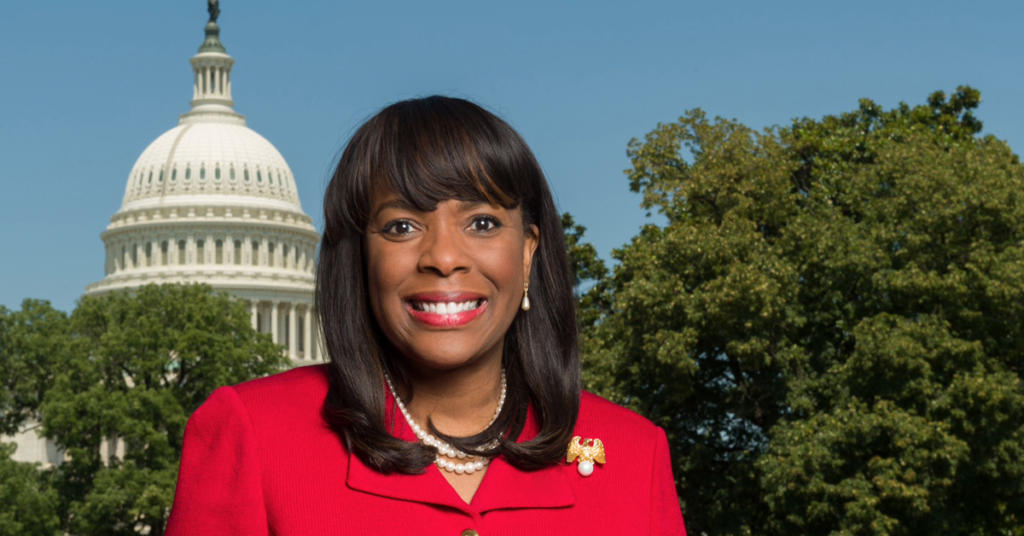
Four years after the Supreme Court’s decision to roll back provisions of Voting Rights Act, Alabama 7th District U.S. Rep. Terri Sewell and a handful of her House colleagues congregated outside of the U.S. Capitol on Thursday for a Speak Out to introduce legislation to restore protections for voters in states with a recent history of discrimination. According to Sewell, H.R. 2978: the Voting Rights Advancement Act (VRAA) addresses a wave of voter ID laws, racial gerrymandering, and other voter suppression tactics enacted at the state level. “Today, I’m introducing the Voting Rights Advancement Act because I believe that the right to vote is one of the most fundamental rights in our democracy,” said Sewell. “As state after state create new barriers to the polls, our work to prevent discrimination and protect the rights of all voters has taken on a new urgency. The time to restore the vote is now.” Sewell continued, “On the eve of the 50th anniversary of the signing of the Voting Rights Act of 1965, I urge my colleagues to recommit ourselves to restoring the promise of voter equality. We cannot silence any voices in our electorate. Our nation will cease to be a democracy if we limit access to voting.” The VRAA seeks to restore full protections to the Voting Rights Act of 1965. If passed, 13 states nationwide would be subject to federal election oversight due to a recent history of voter discrimination. It would also require states with a recent history of voter discrimination to seek approval from the Department of Justice before making any changes to their electoral laws. “We know that we stand on the shoulders of amazing people. We know that we have the rights and freedoms that we enjoy because of other’s sacrifice. And we know that freedom is not free. So it’s important that we amplify our voices,” Sewell added at the Speak Out. “I’m asking millennials to use snapchat and all of the other social media that you have to amplify your voices to get your generation involved. So here’s the thing, your vote is your vote. And if you allow your vote to be suppressed, you’re allowing your voice to be suppressed.” Reps. John Lewis, Judy Chu, Michelle Lujan Grisham, James Clyburn, Joseph Crowley, Sen. Patrick Leahy, NAACP Washington Bureau Director Hilary Shelton, The Leadership Conference President Vanita Gupta, ACLU Political Director Faiz Shakir, and AAJC Director of Census and Voting Programs Terry Ao Minnis were also in attendance. Watch Sewell’s live-stream of the event below:
Alabama’s State Health Officer Tom Miller to retire this fall

Alabama State Health Officer Dr. Tom Miller announced this week he’s retiring this fall, effective Sept. 1 Miller took over as the state’s top health official following the departure of his predecessor, Dr. Don Williamson, which he had held since 1992, in Oct. 2015. Earlier this month Miller found himself at the center of public outcry for the controversial hire of James Talton, the former director of the Central Alabama Veterans Health Care System who was terminated for negligence in 2014. Despite going on record saying Talton was a “good fit” for the job, Miller ultimately walked back his decision to hire him less than a week later explaining, “It reached a point where it was interfering with us getting our work done.”
Mo Brooks introduces bill to allow federal lawmakers to carry guns
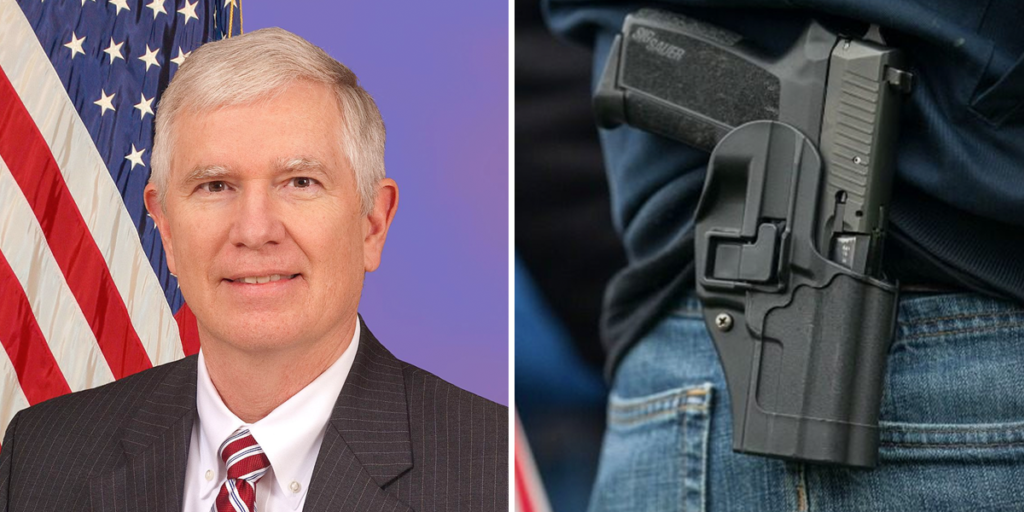
Alabama 5th District U.S. Rep. Mo Brooks‘s name was on a target list of Congressional Republicans carried by the Alexandria gunman last week. Now the Congressman has introduced legislation that would empower him and his congressional colleagues to to be able to carry to carry a concealed weapon like law enforcement personnel, nationwide to ensure their safety. H.R. 2940, the Congressional Self-Defense Act allows lawmakers to carry a concealed weapon anywhere in America except the U.S. Capitol or when in the presence of the President or Vice President. Brooks was at the recent baseball practice where a shooter attempted to assassinate Republican Members of Congress. The shooter possessed a handwritten assassination list that not only included Brooks’ name, but also his office number. “Last week’s shooting at the Republican baseball practice highlighted and reinforced the increasing number of threats faced by Congressmen, Senators, and their families,” said Brooks. “The truth is, if Steve Scalise’s leadership detail had not been present at last week’s practice, many of my colleagues and I might not be alive today. If Congressmen or Senators at the practice had firearms, there is a strong possibility that the shootout would have ended earlier than it did.” His bill would let lawmakers to carry guns in parts of the nation’s capital where firearms are currently banned “Surprisingly, because of Washington, D.C.’s restrictive gun laws, Congressmen and Senators are not allowed to carry a concealed weapon,” explained Brooks. “That is why today I introduced the Congressional Self-Defense Act to allow lawmakers to conceal carry so that they are better positioned to defend themselves against lone wolf and terrorist attacks.”
Donald Trump’s tease of possible James Comey tapes fits a familiar pattern
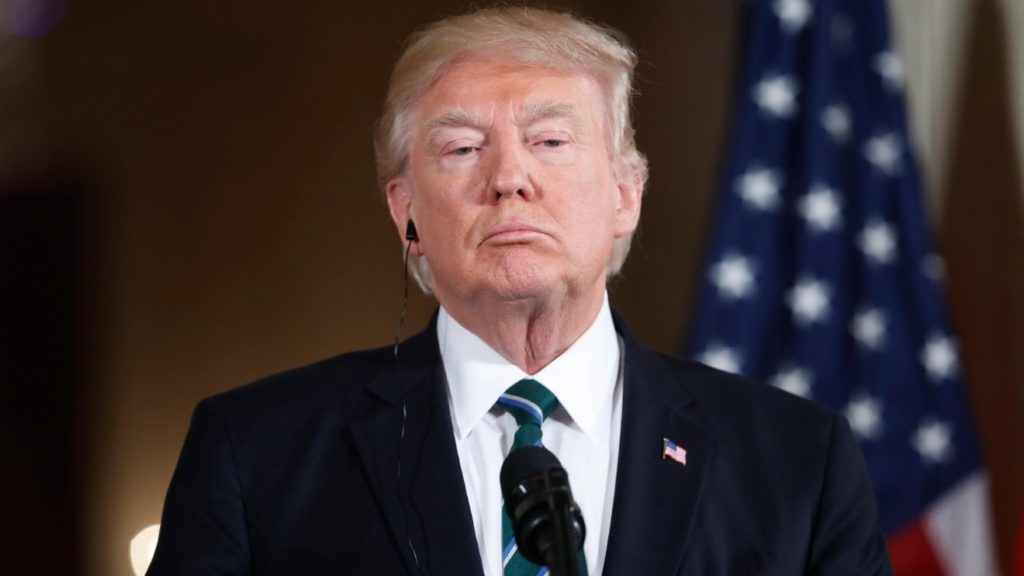
Donald Trump said he had a secret. He dangled it on Twitter. He parried reporters’ questions about it. He milked the moment, drawing out the drama for weeks. That big tease played out in 2011, when Trump promised to reveal what his private investigators had found in Hawaii about President Barack Obama‘s birth certificate. (Trump never did release anything.) Now, Trump has stretched out a new high-stakes guessing game, this time in the White House, by hinting that he might have recordings of his conversations with fired FBI Director James Comey. Trump is expected to answer the tapes question this week. If they do exist, they could become a central piece of evidence in the Russia investigation that has transfixed Washington and cast a shadow over the future of Trump’s presidency. If they don’t, questions will be raised about why the president would stake his reputation and political capital on promoting something that just isn’t real. Several outside advisers who speak to Trump regularly said the president has not mentioned the existence of tapes during their conversations. White House aides have been known to grimace when the subject comes up, and more than a half-dozen staffers said they were unaware of any recording devices. All demanded anonymity to speak about private discussions with the president. Whether the tapes exist or not, this is far from the first time that Trump, the former star of reality TV and tabloids, has manufactured a melodrama that begins with bluster but often ends with a whimper. “I think he was in his way instinctively trying to rattle Comey,” says former House Speaker Newt Gingrich, a longtime Trump confidant. “He’s not a professional politician. He doesn’t come back and think about Nixon and Watergate. His instinct is: ‘I’ll outbluff you.’” The latest chapter in Trump’s tale of mystery began last month, just days after he fired Comey, then leading the investigation into contacts between the president’s campaign and Russian officials. A New York Times report cited two unnamed Comey associates who recounted his version of a January dinner with the president in which Trump asked for a pledge of loyalty. Comey declined, instead offering to be “honest.” When Trump then pressed for “honest loyalty,” Comey told him, “You will have that,” the associates said. Trump tweeted the next day that Comey “better hope that there are no ‘tapes’ of our conversations before he starts leaking to the press!” That immediately evoked the secret White House recordings that led to Richard Nixon‘s downfall during Watergate. Under a post-Watergate law, the Presidential Records Act, recordings made by presidents belong to the people and can eventually be made public. Destroying them would be a crime. Comey has claimed that any recordings would support his claims that Trump asked him to pledge loyalty and to drop the investigation into Trump’s former national security adviser. “Lordy, I hope there are tapes,” Comey declared at a congressional hearing. But the president has steadfastly refused to clarify whether any tapes exist. Two weeks ago, he teased reporters in the White House Rose Garden by saying that he’d explain “maybe sometime in the very near future.” He cryptically added: “You are going to be very disappointed when you hear the answer.” White House deputy press secretary Lindsay Walters said Wednesday that an answer would be provided this week, presumably by the Friday deadline set by the House intelligence committee for turning over any tapes. Trump’s private counsel, Marc Kasowitz, would not be involved in the handover of any tapes, his spokesman said. A White House spokesman did not respond to a question on whether White House counsel Don McGahn would have a role. The Secret Service has no audio copies or transcripts of any tapes recorded within Trump’s White House, according to a freedom of information request submitted by The Wall Street Journal. But that doesn’t exclude the possibility that recordings were created by another entity. At his office in New York, Trump was known to worry about possible listening devices, but he also occasionally taped his own phone conversations. Some campaign workers also believed Trump had a system set up to record phone calls. Trump has a long history of making outsized claims. In the 1980s, he got ensnarled in a battle over a valuable tract of property on Manhattan’s west side he dubbed “Television City,” claiming without proof that major TV networks had promised to build there, according to George Arzt, press secretary for then-Mayor Ed Koch. The project never was built. “This is all about gamesmanship for him,” said Arzt. “It doesn’t matter what the outcome of the gamesmanship is. He’s a showman and it keeps him in the headlines. There haven’t been repercussions if his bluff fails.” Trump flirted with presidential runs in 1988 and 2000 before abandoning them. He offered to help rebuild the World Trade Center in 2004 but never followed through. And his embrace of birtherism, which questioned whether Obama was born in the United States and eligible to become president, fueled his political rise. He claimed to have sent investigators to Hawaii and teased their possible findings for months, but never produced any evidence. The pattern has continued since his election. Sometimes he’s delivered on the tease: He spent weeks building suspense about whether the United States would remain in the Paris climate agreement and eventually announced in a lavish Rose Garden ceremony that the U.S. would pull out. But other times he has not. On New Year’s Eve, he claimed he knew “things that other people don’t know” about foreign hacking of last year’s election, and that the information would be revealed “on Tuesday or Wednesday.” Those days came and went without an answer. In March, he tweeted the incendiary claim that he was wiretapped by his predecessor, a charge he’s never supported. “He follows the paradigm that no news is bad news,” said Sam Nunberg, a former campaign aide. “He knows how to play to America’s insatiable appetite not just for news
Angry Dems turn against leaders after House election losses

Democratic Party divisions were on glaring display Wednesday as a special election loss in a wildly expensive Georgia House race left bitter lawmakers turning their anger on their own leaders. “We as Democrats have to come to terms with the fact that we lost again,” said Rep. Seth Moulton, D-Mass. “Personally I think it’s time for a new generation of leadership in the party.” The loss in Georgia followed similar disappointments in special House elections in Kansas and Montana, as well as in South Carolina Tuesday night. The Carolina outcome was closer than in Georgia but drew little national attention. In the well-to-do Atlanta suburbs, House Minority Leader Nancy Pelosi of California was the focus of torrents of negative advertising in a House race that cost more than $50 million, the most expensive in history. Republican Karen Handel beat Democrat Jon Ossoff by about 5 percentage points. Although the race was widely viewed as a referendum on President Donald Trump, he was rarely discussed by either candidate, and House Democrats were rattled that the attack ads casting the 77-year-old Pelosi as a San Francisco liberal proved so potent. Some expressed fears about the same tactic being used elsewhere as they aim to take back control of the House in next year’s midterms. Democrats need to pick up 24 House seats to retake the majority. “It makes it a heck of a lot harder,” said Rep. Tim Ryan, D-Ohio, who unsuccessfully challenged Pelosi in a leadership election last fall. “One of the disappointing things from the last couple days is that that approach has a little bit of punch to it, it still moves voters.” Trump’s election as president had papered over the intraparty disputes and generational divides among House Democrats, as lawmakers joined in opposing the White House and trying to channel the energy of their party’s liberal base. But now, after a string of disappointments, those divisions have re-emerged, though Pelosi appears unlikely to face an immediate challenge. Lawmakers are also bemoaning a weak Democratic bench of candidates nationally, and demanding a better strategy for success and a new and stronger economic message that differentiates them more clearly from the Republicans. “If we think we’re going to win these elections because President Trump’s at 35 percent, I think in districts like mine and certainly Georgia and South Carolina, it takes more than that,” said Rep. Tim Walz of Minnesota. “And I’m not sure that that’s there yet. I certainly don’t feel it.” “We need to be focused on next November, and what happens with the reality of health care and trade, tax policies and the impact on working men and women,” said Rep. Debbie Dingell of Michigan. She said she has told Democrats to stop focusing on Russia’s meddling in the 2016 election. Put on defense, House Democratic leaders from Pelosi on down tried to spin the outcome in Georgia as positive, arguing that coming in a close second in the solidly Republican district augured well for their chances of taking back the House next year. “Unfortunately a loss for us, but not good news for them,” Pelosi told the rank-and-file in a closed door meeting Wednesday morning, according to Democrats present. “We gave them a run for their money.” Rep. Ben Ray Lujan of New Mexico, who chairs the Democratic Congressional Campaign Committee that invested millions in the race, argued in a memo to lawmakers, “Despite the loss, we have a lot to be proud of” and “we have a unique opportunity to flip control of the House of Representatives in 2018.” And Rep. Steny Hoyer of Maryland, the No. 2 House Democrat, remarked that “we had no business winning those districts” because of their GOP allegiance. Democratic leaders said there are at least 70 other districts that will be easier terrain for them than the one in Georgia after post-census gerrymandering in GOP-led states created so many heavily Republican districts. In a letter to Democrats late Wednesday, Pelosi insisted majority control of the House is up for grabs. “The president’s numbers are in the thirties and our base is energized,” she wrote. “We must now put forth our message.” Many rank-and-file Democrats were not having it. “We put a lot of resources, a lot of fight, and close is only good in horseshoes,” said Rep. Bill Pascrell, D-N.J. “A loss is a loss is a loss and there’s no excuses.” But prescriptions for how the Democrats should move forward varied. Some on the left argued for a sharper progressive message and more pointed attacks on Republicans and Trump, while Democrats from Midwestern and working-class districts emphasized the importance of an economic message that could appeal to working class voters who were drawn to Trump. One thing most everyone could agree on: Coming in second doesn’t cut it now and wouldn’t be an outcome to celebrate next November. Said Rep. Ed Perlmutter of Colorado: “Closing the gap is great, but it’s not good enough, and we have to do better.” Republished with permission of The Associated Press.


